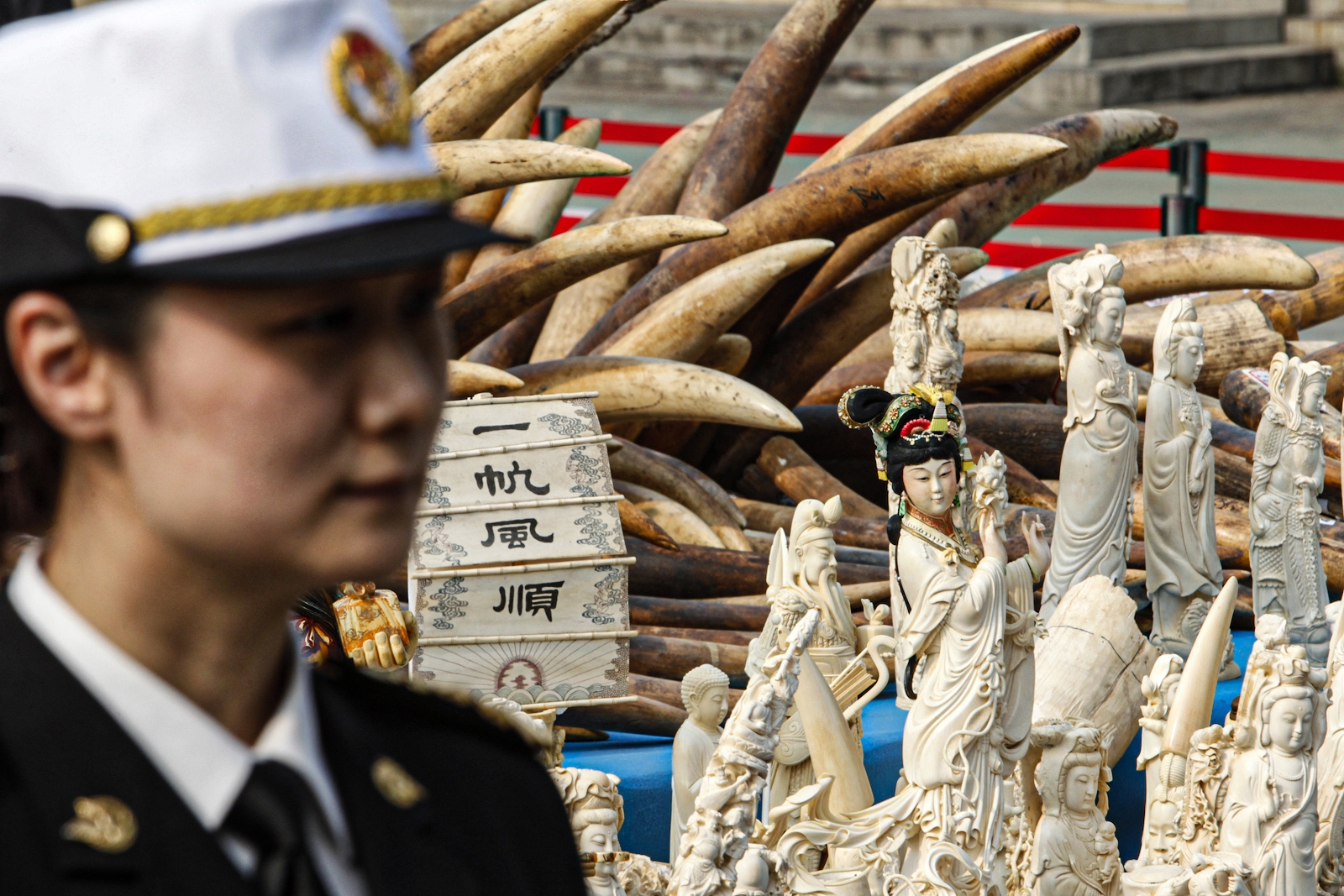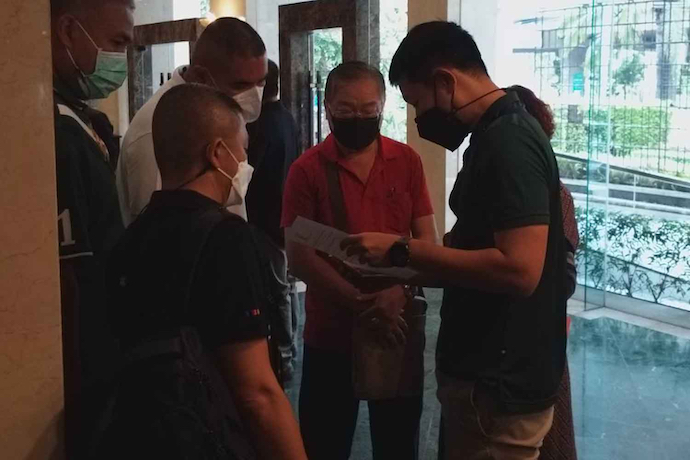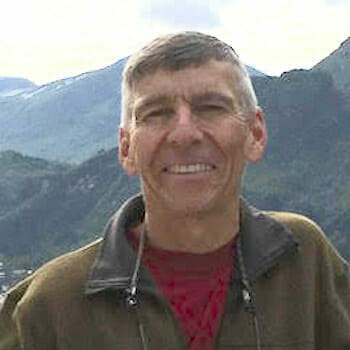
A Malaysian National and His Ivory Connection to Africa
For those even sporadically interested in international wildlife crime, when either the Environmental Investigation Agency (EIA) or the Wildlife Justice Commission (WJC) ‘raises a glass,’ figuratively or literally, to the capture of an international wildlife trafficker, one has to sit up and take note. On June 29th, the Royal Thai Police, in conjunction with the U.S. Fish and Wildlife Service, made such an arrest. Teo Boon Ching, a Malaysian national, was arrested for wildlife trafficking and money laundering. He is to be held pending extradition to the United States.
While no information as to specific charges has been released, the EIA describes Teo Boon Ching as a “key player in the illegal wildlife trade between Africa and Asia.” Thai authorities stated: “[Teo Boon Ching] did not have an exact place of residence. He was always traveling from one country to another, especially Africa, and was therefore difficult to [track].”
So, who exactly is Teo Boon Ching, and what is his importance? With extradition to the United States in the works, and taken in conjunction with the 2019 takedown of the West African cartel (recently convicted in New York), it would not be a stretch to assume that Teo Boon Ching’s arrest was related. The EIA, in their report, “Exposing the Hydra,” refers to Teo Boon Ching as a key member of a Vietnamese wildlife trafficking syndicate, taking the role of a “specialist transporter.” His contraband of preference was elephant ivory, rhino horn, and pangolin scales. Teo Boon Ching had reportedly been in the business for 20 years and operated a clearance, transportation, and sales service for illegal wildlife products from Malaysia to Laos and China.
With Teo Boon Ching as a specialist transporter and Moazu Kromah of the West African cartel as a prime supplier of ivory and rhino horn in Africa, it would only make sense that their paths would have crossed. The connection is made even stronger considering that one of Kromah’s customers was Vixay Keosavang. Keosavang, known as the “Pablo Escobar of the wildlife trade,” is based in Laos and has been in the sights of U.S. authorities for years.
Despite his 20 years in the business, public records indicate that Teo Boon Ching had been arrested only once before on wildlife-related charges. In 2015, Thai authorities arrested Kampol ‘Riam’ Noithanom with 134.7 kg of ivory hidden in an ice container mounted on the rear of a pickup truck. The capture took place approximately 250 km from the Laotian border and 50 km from the Cambodian border.
Subsequent investigation resulted in the arrest of Teo Boon Ching and an accomplice, Sirichai Sridanond, three months later on March 19th. It was alleged that Teo Boon Ching and Sridanond had supplied the ivory to Noithanom for onward transport. Reports differ on the conclusion of that prosecution but at worst, Teo Boon Ching received a small fine.

It is of interest that during a press conference at the time of his arrest, officials stated: “Mr. Teo Boon Ching has made numerous trips to Kenya. This shows that the illegal ivory trade networks in Thailand are connected to foreign businessmen. Mr. Teo Boon Ching’s frequent trips to the African region, which is Kenya, has led us to believe that this is an African trans-national ivory trade network.”
At that time, Mombasa was the primary port of egress for ivory from Africa and much of that ivory was supplied by Moazu Kromah and the West African cartel. Shortly after Teo Boon Ching’s March 19th arrest, two containers of ivory, one from the Democratic Republic of Congo (DRC), and another from Mombasa, were seized in Bangkok one week apart. The Mombasa-related seizure is now before the Mombasa courts and is allegedly connected to Kromah. The destination of both containers was Laos and shared the same importer.
The EIA report, “Exposing the Hydra” provides some insight into the work of Teo Boon Ching and his value to the Vietnamese syndicate. Teo Boon Ching worked in conjunction with Nguyen Tien Son, who operated in Congo, Laos, Mozambique, Nigeria, and Vietnam, as well as, Le Thi Thank Hai, another transport specialist who primarily moved wildlife contraband from Laos into Vietnam and China.
But he also provided his logistical services to Chinese organised crime groups as well. He told EIA undercover operatives that he had been instrumental in recovering two containers of pangolin scales that had been en route to Hong Kong when a sister shipment of 7.2 tonnes of ivory had been seized in 2017. Typically, wildlife traffickers maintain the same logistical ‘road’ (similar route, consignees, consignor), until there is reason to change it. In this case, the seizure of the 7.2 tonnes of ivory would have alerted law enforcement and customs agencies to several pending seaborne contraband arrivals.
Teo Boon Ching said that he had been approached by a Chinese businessman from Xianyou by the name of ‘Lin,’ to ascertain if several other containers of pangolin scales could be saved from seizure. Teo Boon Ching contacted his Nigeria connections, and two containers of pangolin scales were re-routed in time to prevent their seizure. Four other containers, however, were seized: two containers of 8,000 kg of pangolin scales in Sabah, Malaysia, on July 29th, 2017, and two containers of 3,000 kg of ivory and 5,000 kg of pangolin scales, also in Sabah, Malaysia, on August 29th. All containers, including the two seized in Hong Kong with 7,200 kg of ivory, originated from Nigeria. The 7,200 kg ivory shipment has been definitively linked to the Kromah network.
The Chinese businessman identified as ‘Lin,’ may well be Lin Zhiyong, known to have Malaysian connections while working with the Chinese cartel of Chen JianCheng and his two sons. They were identified by the Wildlife Justice Commission in a comprehensive February report, entitled “Bringing Down the Dragon”. Lin Zhiyong is presently in a Chinese prison on a life sentence related to his wildlife crime activities.
And while Teo Boon Ching boasted of only one seizure from the 80 container shipments he personally handled (easily in excess of 80 tonnes of ivory, rhino horn, and pangolin scales), his Achilles heel may well turn out to be the smaller air freight shipments he organised into Kuala Lumpur International Airport (KLIA) from East and West Africa. It is known that on Kromah’s initial arrest in 2017, his mobile phone contained copies of bills of lading of several airfreight shipments from Entebbe International Airport, Kampala, to KLIA, as well as other destinations.
On July 21st, 2016, three different seizures were made at KLIA from three different flights that originated from Kinshasa, DRC, via Istanbul, on Turkish Airlines. The total ivory weight was 1,001 kg, all three shipments declared as wood samples, and all for the same fictitious Johor consignee. This same Johor consignee was the intended ‘buyer’ of a 2016 1,286 kg ivory seizure in Juba, South Sudan that was also destined for KLIA. This shipment was directly attributable to the Kromah network and featured ivory from the supposedly secure Burundi government ivory stockpile.
One week later, another seizure at KLIA, this time originating from Entebbe International Airport but via Istanbul on Turkish Airlines and yielding another 111 kg of ivory. The bill of lading for this shipment was found on Kromah’s phone.
In January 2017, 846.8 kg of ivory, comprised of 254 tusks in 17 wooden boxes, was recovered at KLIA. This Turkish Airline flight had originated from Kinshasa, DRC, and again transited Istanbul. The shipment had been declared as wood samples, again similar to the July 2016 seizure. Another similarity, besides the logistics, was the tusk origin. DNA analysis showed the tusks to be primarily savannah elephant ivory from Zambia. This was atypical at the time as most savannah ivory analysed had originated from Mozambique, Tanzania, and southern Kenya.
Between March 2016 and October 2016, there were at least three other flights into KLIA, two from Entebbe and one from South Sudan, as indicated by bills of lading on Moazu Kromah’s phone. The total weight of ivory between the three flights was 1,295 kg.
Wildlife crime experts and affiliated NGOs now await the outcome of the extradition hearing and subsequent charging details. But one thing is certain. The evidence presented in court against Teo Boon Ching will be a gross understatement of the actual total amount he has shipped from Africa to Southeast Asia in the past 20 years.
And hopefully, there are more yet to fall.
